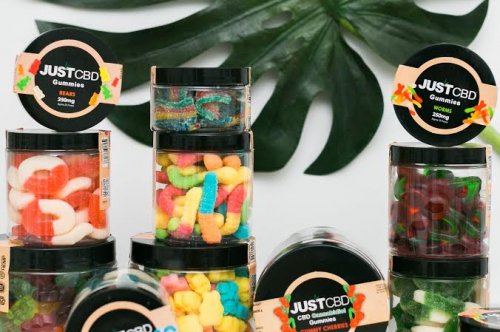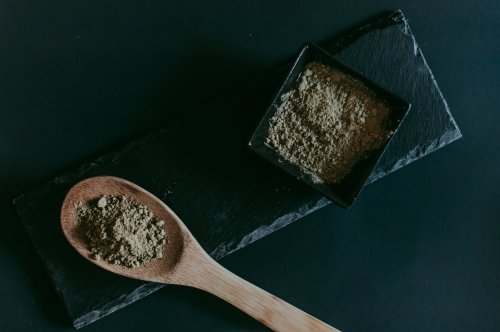CBD Oil For Childhood Behavior And Mood Disorders Like Aggression, Depression, And Anxiety

While having fewer responsibilities than adulthood, childhood is no walk in the park. Children are constantly learning and adapting to the world around them with fluctuating hormones and limited understanding of emotional intelligence. In some cases, a child may also have developmental or congenital impairments that can add further stress to coping with everyday life as a child. CBD tinctures might just be able to help children manage their moods and behaviors safely and without side effects. Let’s take a look at how CBD can help with childhood aggression, depression, and anxiety.
What is Aggression In Children?
Childhood aggression can present itself in a number of ways. The most common signs of childhood aggression include:
- Frequent loss of temper or a high intensity anger
- Extreme irritability
- Impulsivity and the inability to remain focused
- Frustration
- Physical attacks and fights with other children or adults
- Frequent disruption
- An argumentative or sullen attitude
- Poor performance in school
- Inability to participate in organized activities (events, sports, etc)
- Difficulty in social situations and making friends
- Challenges parental authority and refusal to follow rules
- Denial of responsibility for misbehavior
All children will present with these behaviors at one time or another. Suffering from childhood aggression means displaying many of these behaviors frequently and in all different contexts, meaning at school, at home, with friends or other family, etc.
Why Is My Child Aggressive?
There are several reasons why a child may present with this type of behavior. Here are some of the most common:
Fear
Children are vulnerable and at the mercy of adults in many ways. Like adults, they have a fight or flight response and sometimes that means that fear can produce aggressive behaviors. Lashing out is a natural response to fear, whether physical or emotional based. This type of aggression is typically fairly mild in terms of being easily treated by using coping strategies and recognizing triggers.
Trouble at home
Children are not capable of processing stress the same way adults can. They don’t possess the language or the acumen to vocalize their stressors or worries. When a child is experiencing difficulty in the home, whether it’s sibling rivalry that has gone too far, divorce, or moving to a new home or city, they can experience a multitude of worries, discomfort and fear.
Learning Disabilities
Children spend the majority of time at school and learning. A child who suffers from a learning disability, especially one that has not yet been diagnosed, can feel an immense amount of frustration with zero understanding of why they’re struggling. This frustration can become physical aggression easily.
Neurological Disorders
Neurological disorders are an abnormality in the central nervous system, the brain, or the muscle cells. In children, they can be congenital (for example, spina bifida), or acquired through trauma (for example, traumatic brain injury). If you suspect a neurological disorder, please seek immediate medical help from a specialist.
Behavioral Disorders and Mood Disorders
Behavioral disorders such as attention deficit/hyperactivity disorder (ADHD) or oppositional defiant disorder (ODD), and mood disorders such as bipolar disorder or depression, can predispose children to aggression as they are unable to control their impulses and can become increasingly frustrated by getting reprimanded for behavior they don’t feel responsible for, or feelings they don’t understand.
Trauma
Experiencing emotional trauma can be a major factor in childhood aggression. With an increase in fear, anxiety, and depression, there is a high likelihood of the manifestation of physical violence.
Modeled Behavior
Children will model the behavior they see. Limiting exposure to violence, both real and fictional, is important in order to minimize aggression in children, particularly if they are prone to aggression as a result of any of the reasons listed above.
How can CBD Help Treat My Child’s Aggression?
Current Research Outlook
Research regarding CBD and children is still mainly limited to seizure disorders, however there are some promising new studies that suggest that CBD can lower aggression. Scientists are even conducting studies using synthetic CBD in order to test the effects it has on children with severe autism. The goal isn’t to cure autism, rather to see how effective CBD is at reducing or managing the symptoms of severe autism that can greatly impact the quality of life such as aggression, self-harm, and hyperactivity.
Up and Coming Research
Because CBD is now legalized, the floodgates have opened to research possibilities. Scientists are now beginning to look at the effects of CBD (and THC as well to a point) on specific behaviors and moods. Preliminary research has shown a reduction in aggression without affecting locomotor behavior, meaning no neurological impairment and the subjects can move freely without being altered by the CBD. The research is only beginning but the results suggest there’s a possibility that CBD can be used to reduce aggression in children regardless of the trigger. Research already shows that CBD can reduce brain inflammation and even help protect the brain against injury and degeneration through a process called neurogenesis. Additionally, with CBD’s effect on serotonin and anademine, children who suffer from aggression as a result of stress, anxiety, or depression, can find relief with the addition of a CBD tincture to their health regimen.
CBD Oil Tincture For Children With Anxiety
Just like adults, children can suffer from anxiety and experience a decreased quality of life as a result. Thankfully, CBD tinctures can be an easy method of delivering CBD to provide natural relief for anxiety, even in children.
What Does Childhood Anxiety Look Like?
Anxiety in children can be more challenging to diagnose or recognize as it often presents differently from adults. Some symptoms to be mindful of that may indicate your child is suffering from anxiety include:
- Difficulty concentrating
- Inability to sleep or remain asleep (having bad dreams)
- Loss of appetite
- Increased irritability or outbursts
- Constant worry or negative thoughts
- Frequent toileting
- Frequent fidgeting or restlessness
- Constant crying
- Clingy behavior
- Complaints of tummy aches and feeling unwell
If your child presents with the symptoms, it is likely they are suffering from anxiety. A doctor should always provide a diagnosis in order to rule out any other underlying causes.
How Can CBD Tinctures Provide Relief For Childhood Anxiety?
CBD has the incredible effect of reducing hyperactivity in the amygdala, the center of the brain responsible for fight or flight. When we are experiencing anxiety, our brain is sending signals throughout our body in an attempt to ensure we can escape the danger. When we experience this process frequently, we end up with chronic anxiety, or generalized anxiety disorder. Adding CBD tincture to your child’s health plan can be beneficial to treat their stress and anxiety.
CBD Oil Tincture for Children with Depression
What does Childhood Depression Look Like?
Diagnosing depression in children can be difficult as childhood is a tumultuous time psychologically and the symptoms of depression will often be explained as normal emotional and psychological development. Your child might be suffering from depression if they exhibit some of the following symptoms or behaviors:
- Increased irritability or anger
- A feeling of hopelessness, worthlessness, or guilt
- Continuous feeling of sadness
- Withdrawal from social activities like sports, school outings, or friend playdates
- Low energy and lethargy, even during activities at home, with friends, in school, etc.
- Increased sensitivity to rejection or failure
- Sudden increased or decreased appetite
- Sleeplessness or oversleeping
- Increased crying or outbursts
- Complaints of tummy aches or headaches that don’t improve with treatment
- Difficulty concentrating
- Thoughts of death or suicide
Just like with anxiety, it is important to seek medical advice to diagnose depression in children. A major hallmark of depression as opposed to just acute feelings of frustration or sadness is that your child will be withdrawn or sad or low-energy in all areas of life, for example at school, home, and with friends.
How can CBD Tinctures Provide Relief for Childhood Depression?
When we’re depressed, our brain isn’t releasing chemicals like serotonin as a reward when we’re experiencing pleasant experiences. This is what causes us to lose interest in things we would otherwise love. CBD regulates our endocannabinoid system and can help us return to homeostasis by increasing the production of chemicals like serotonin. By adding a CBD tincture to your child’s health routine, you can help alleviate some of the negative symptoms that come with depression with fewer side effects than common prescription antidepressants. Just like with any treatment, always discuss adding treatment options with your pediatrician as CBD can interact with some medications.
Final Thoughts
CBD can be a very safe and effective way to treat childhood aggression, depression and anxiety. Before using CBD tinctures on your child, always consult a doctor to ensure it will not interact with any medication your child is currently taking. The known side effects of CBD include:
- Dry Mouth
- Low Blood Pressure
- Light-Headedness
- Drowsiness
Compared to modern antipsychotics and antidepressants, it is obvious why parents and pediatricians are starting to turn toward CBD as a treatment option. Before you purchase your CBD tincture, please check out our CBD Buyer’s Guide to ensure you know what to look for when buying a CBD tincture.
**If you or anyone you know is suffering from thoughts of suicide, please get help: National Youth Suicide Prevention Hotline: 1-800-273-8255 https://suicidepreventionlifeline.org/help-yourself/youth/ **
















